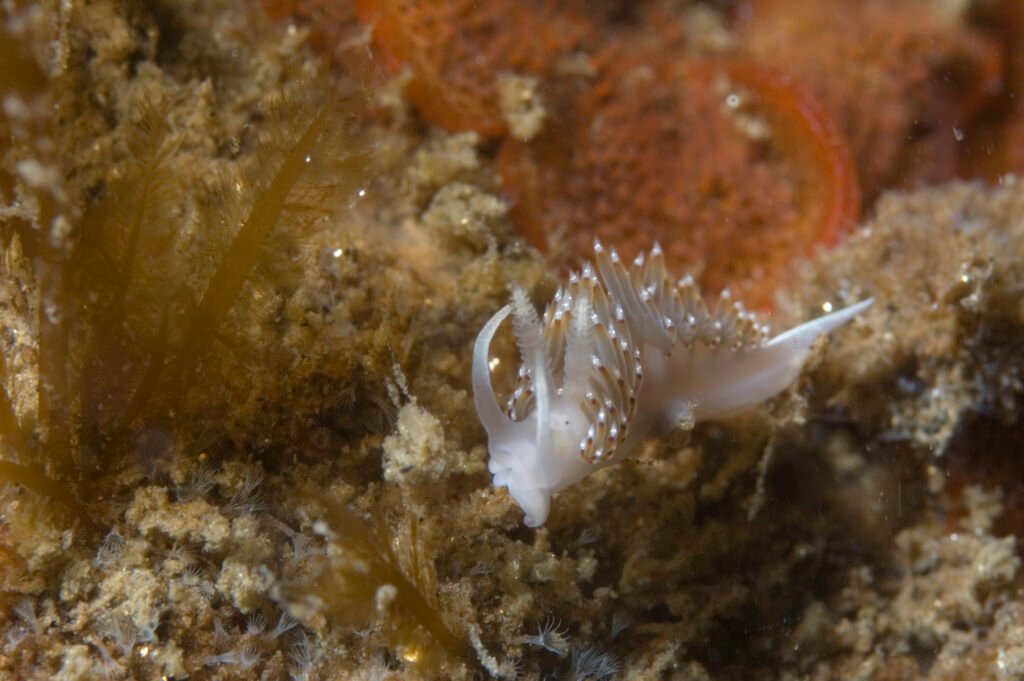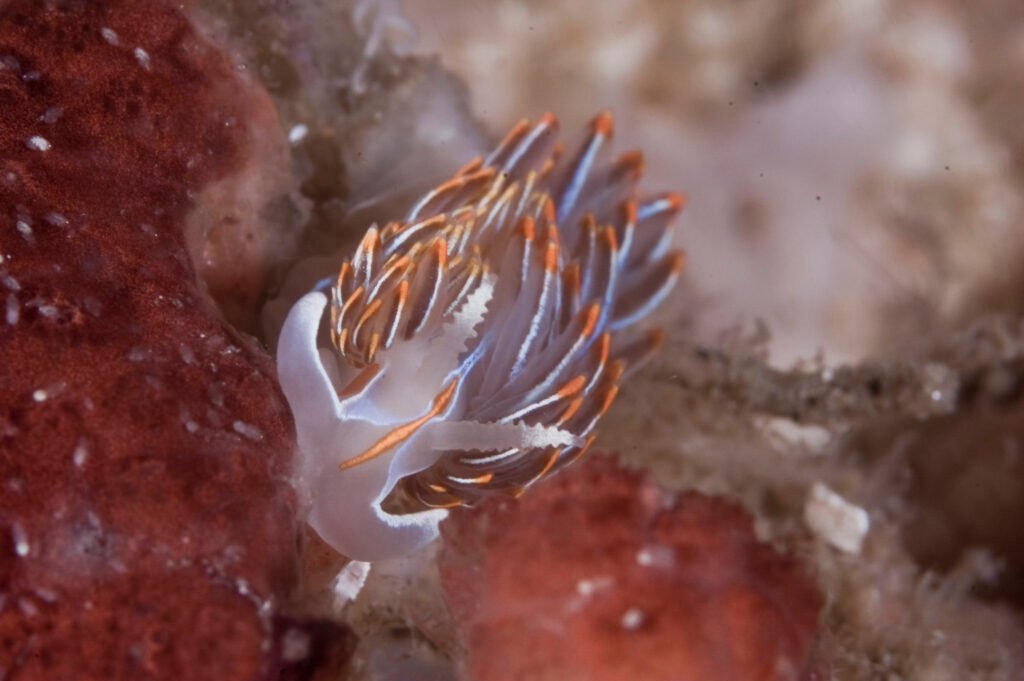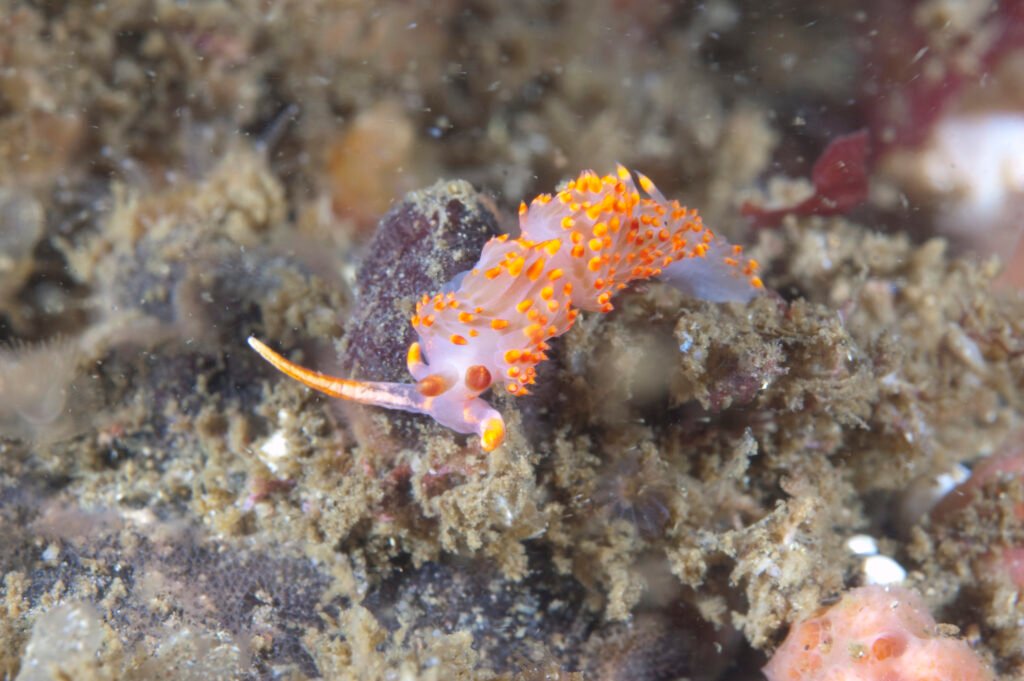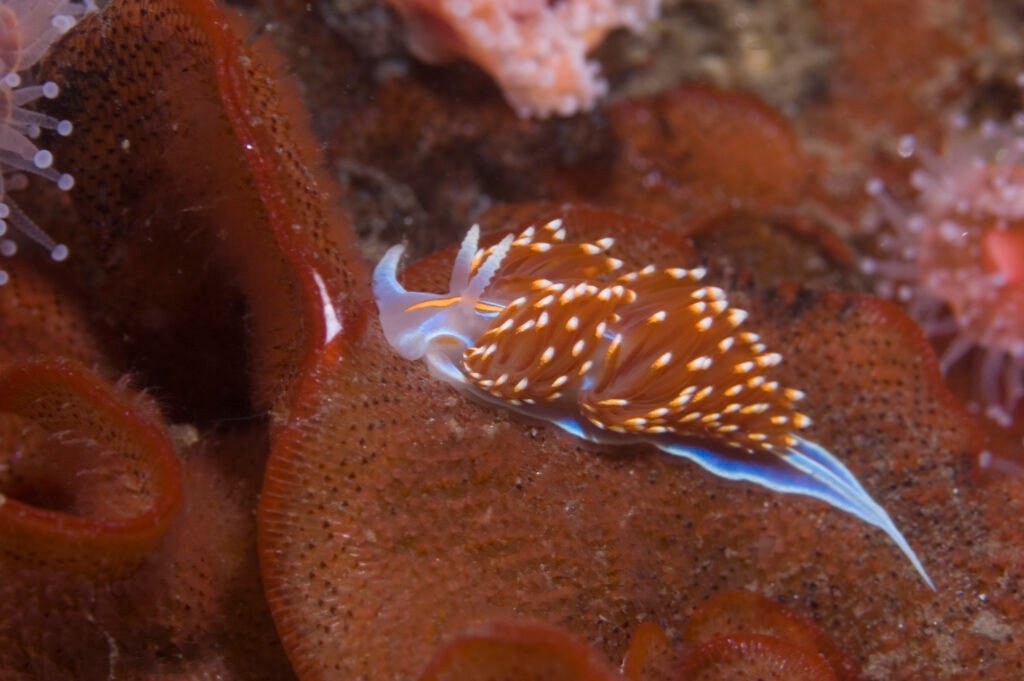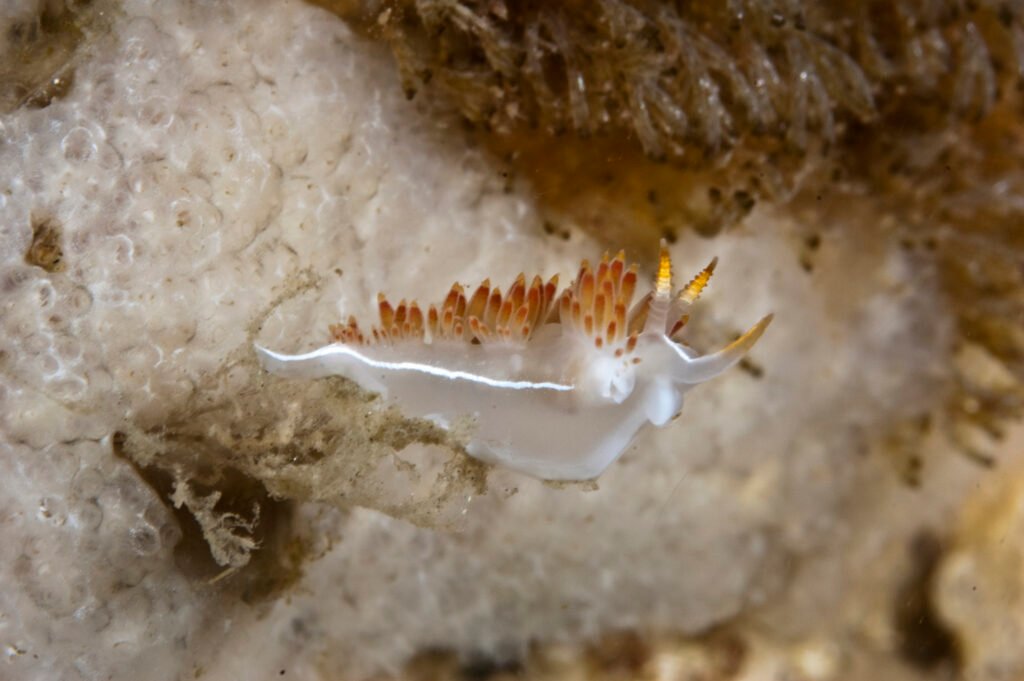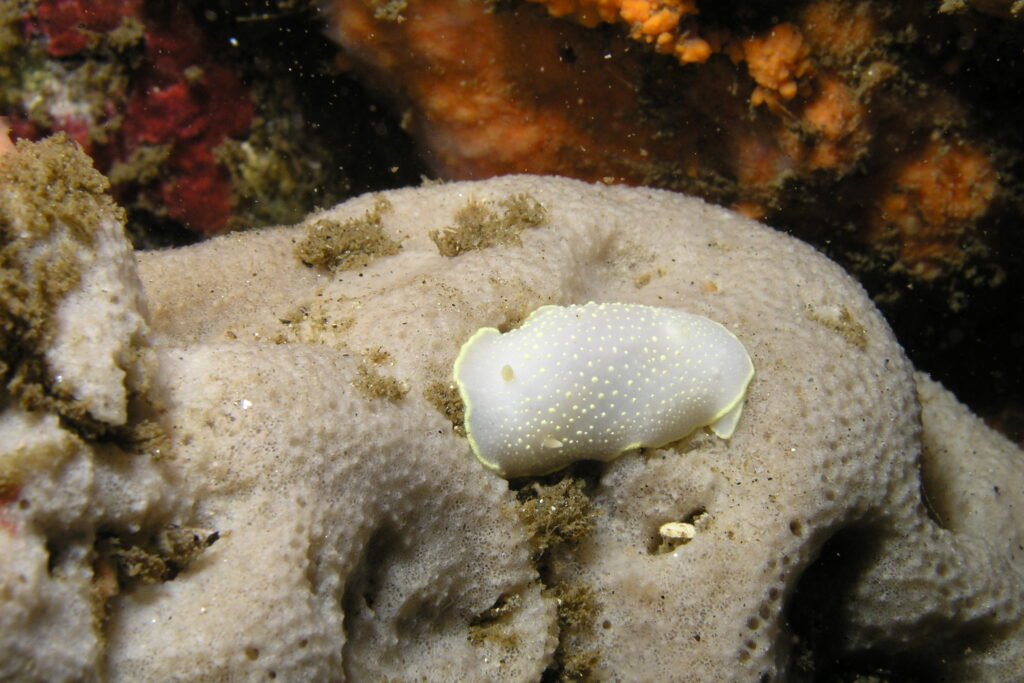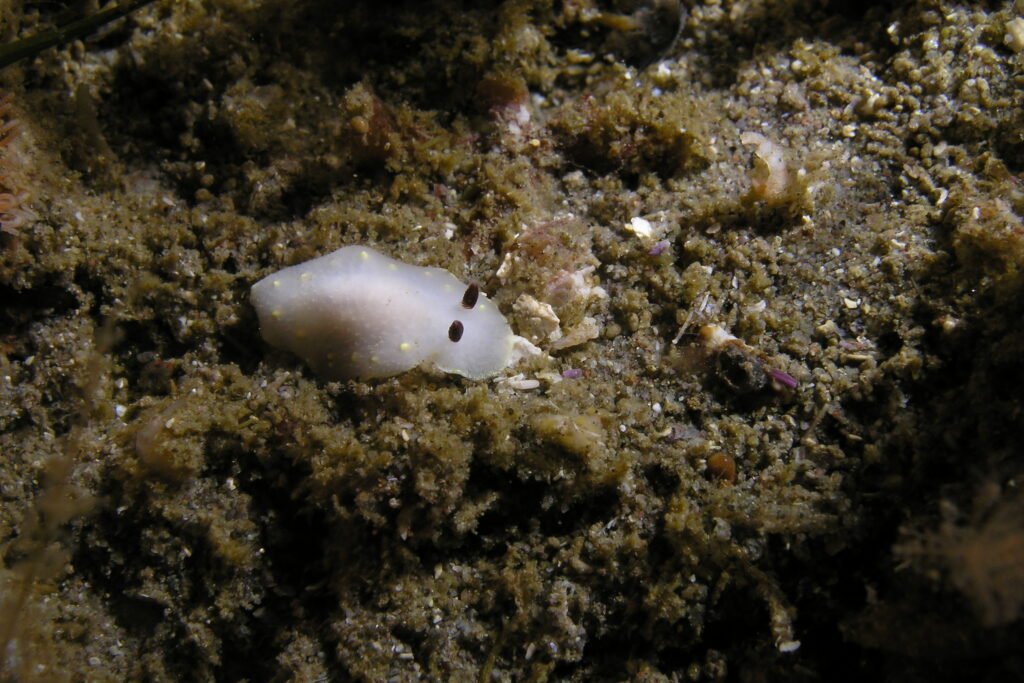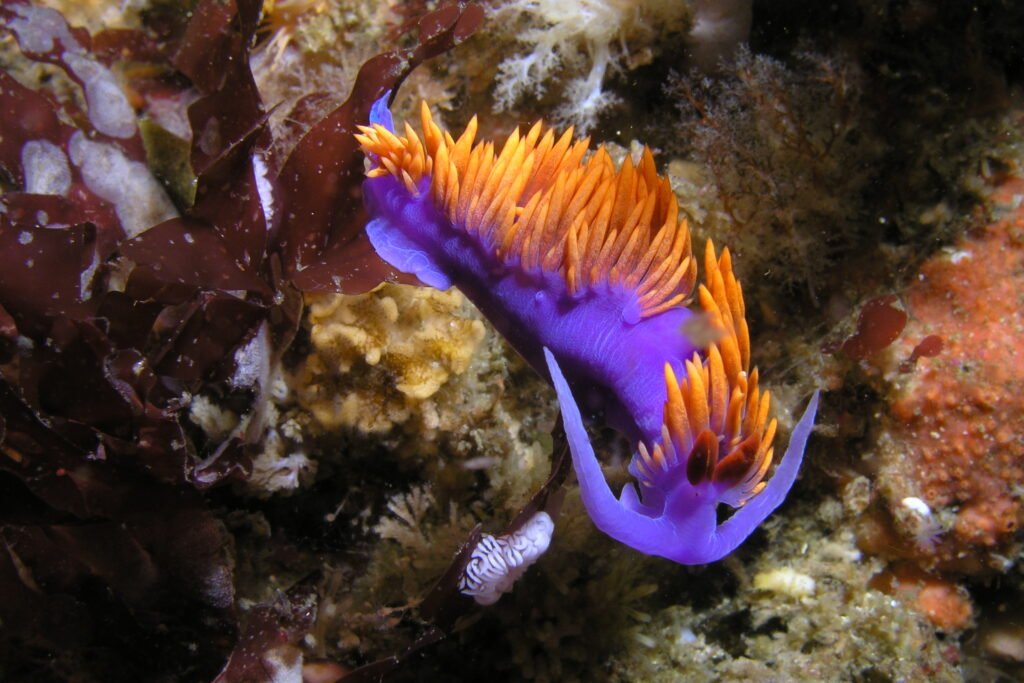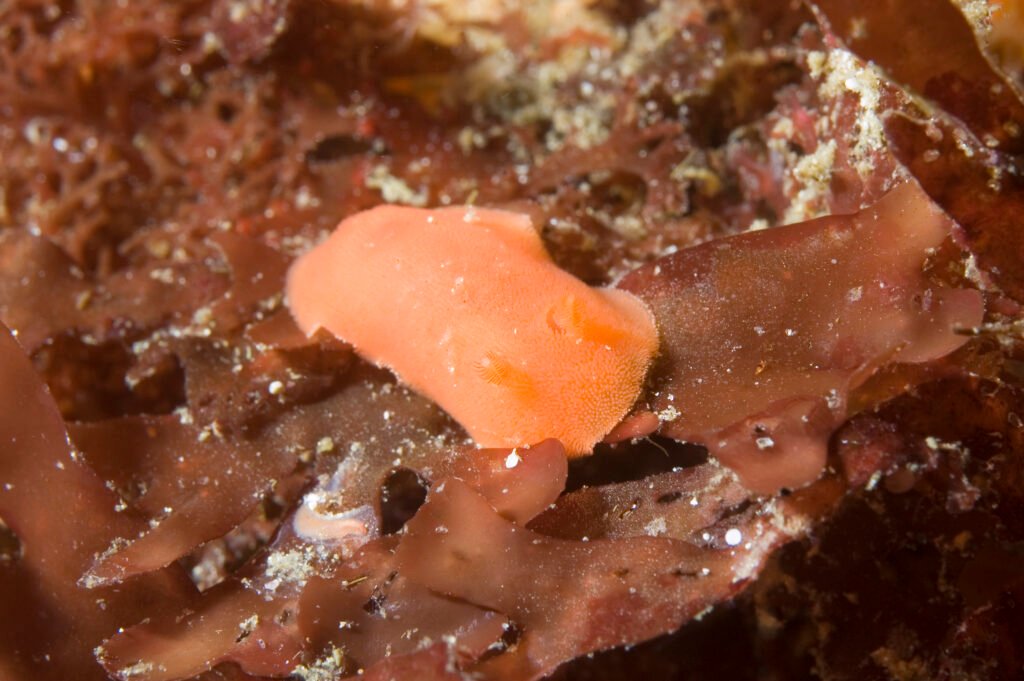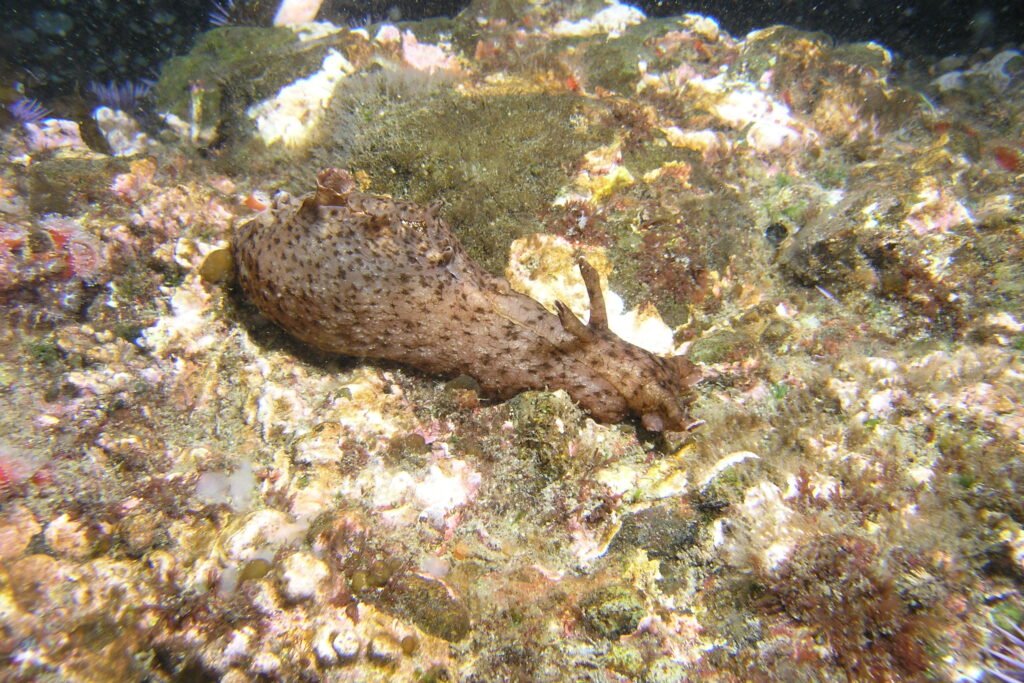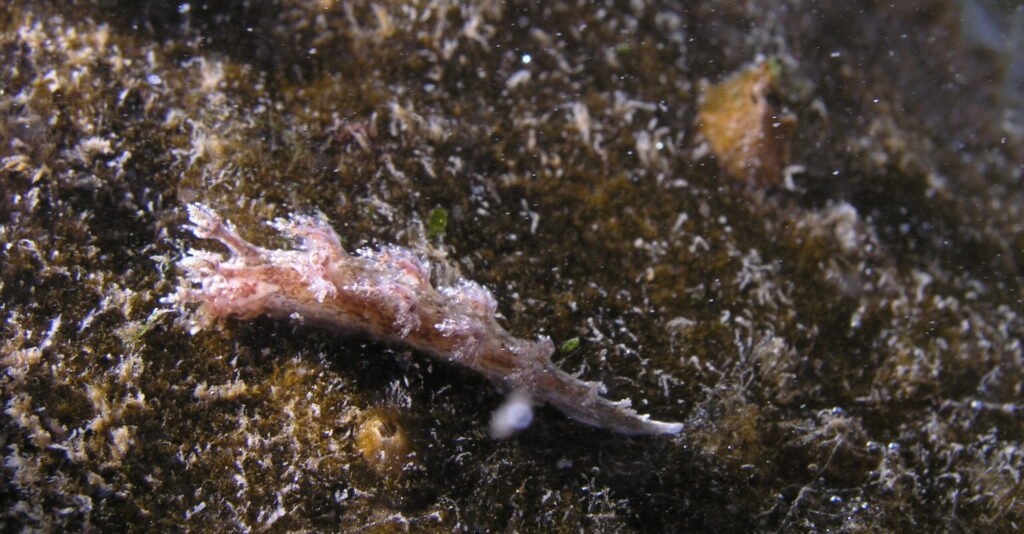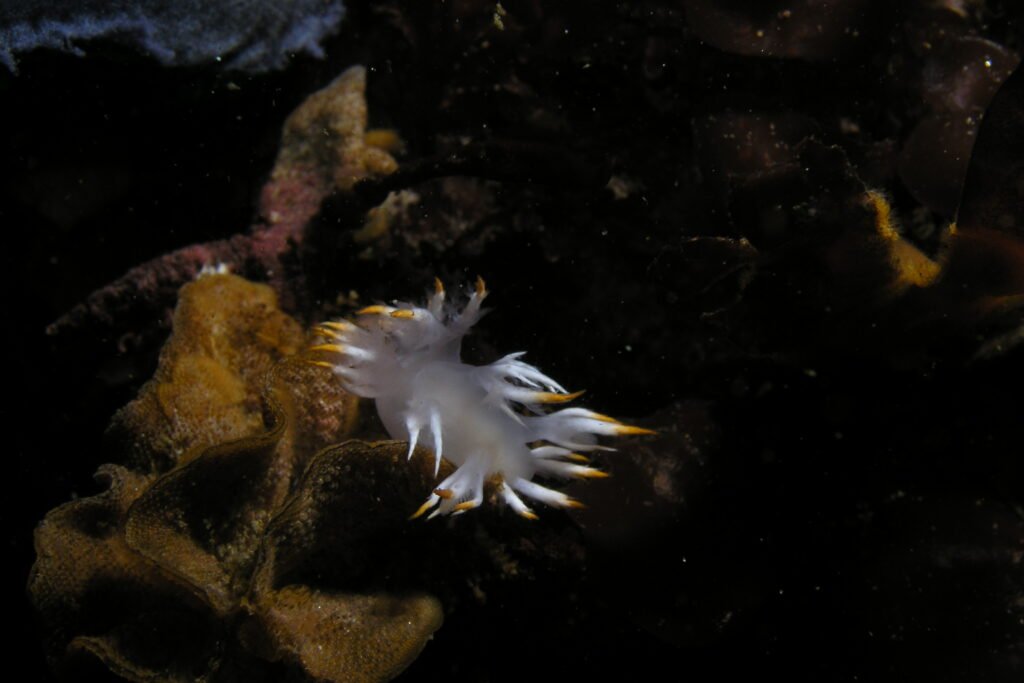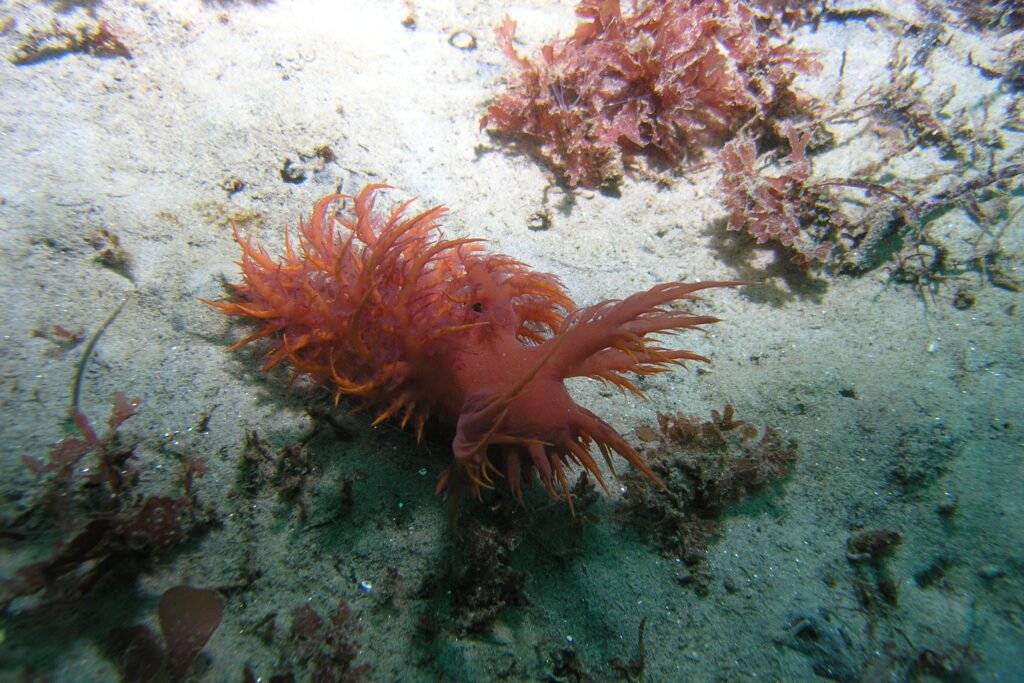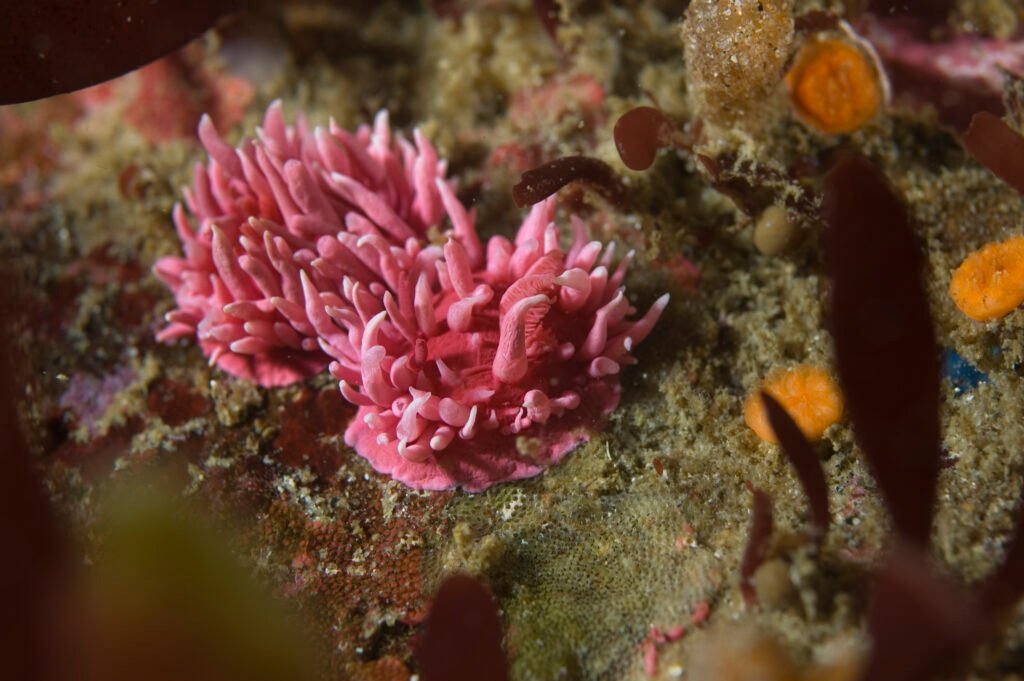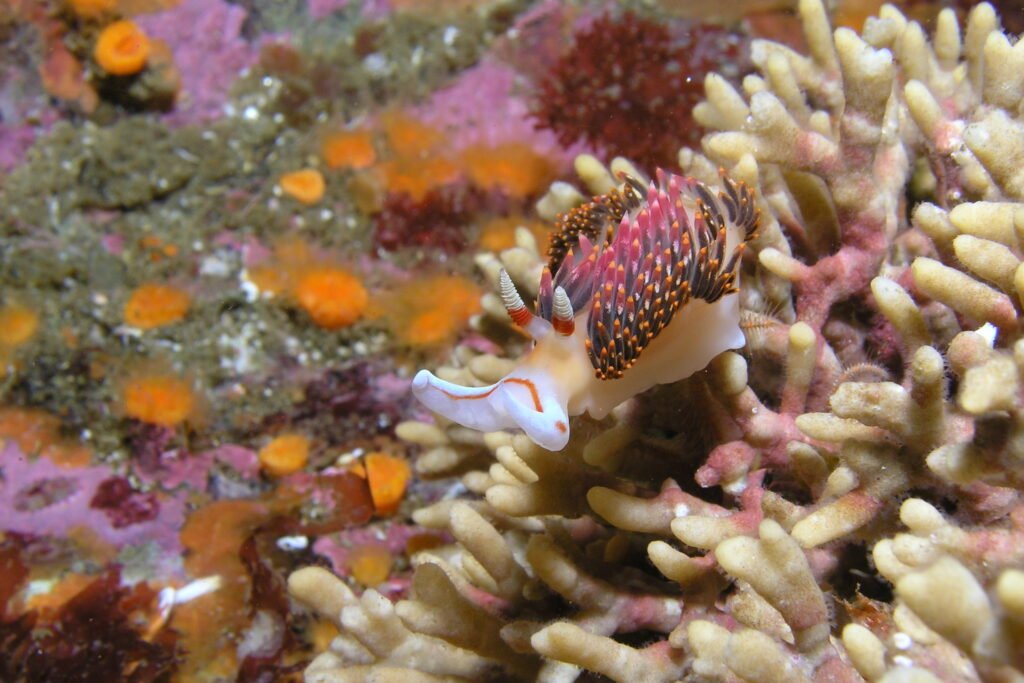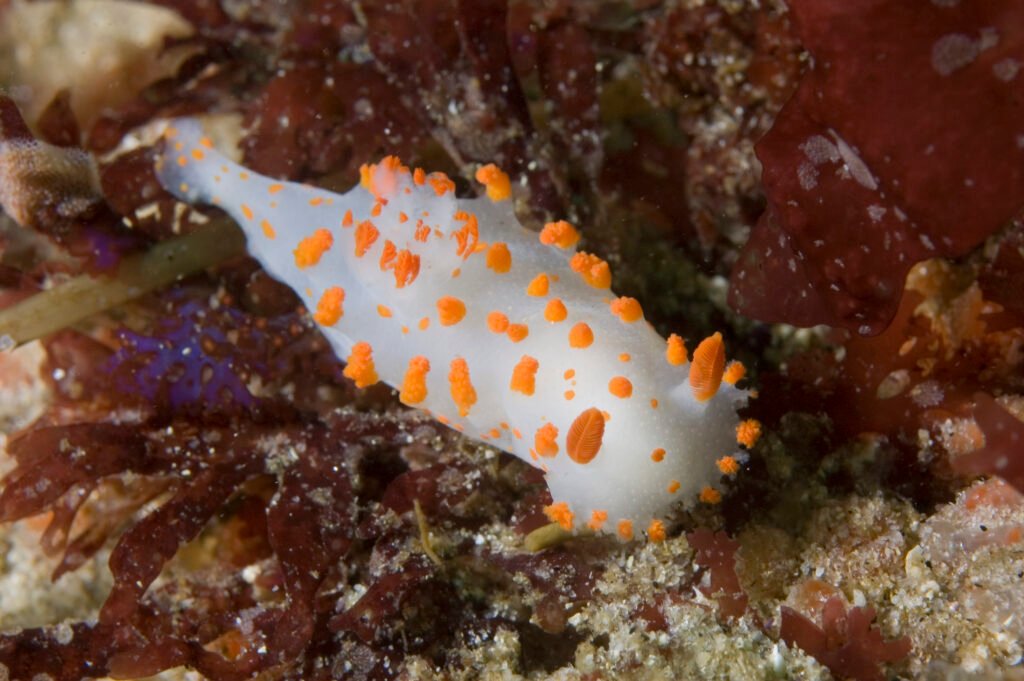Physical Description
The Smooth-tooth Aeolis, scientifically known as Flabellina pricei, features a translucent greyish-white body. Its foot has an irregularly broken band of opaque white along the dorsal edge, with occasional pale orange spots dorsally on the head. The cerata are arranged in 9-12 or more transverse rows, tipped with opaque white and bearing a subterminal band of rich brown transitioning into yellow below. Oral tentacles are translucent greyish-white with opaque white encrustation, while the rhinophores are pale yellow-green distally, exhibiting 8-11 complete annuli alternating with incomplete annuli on the posterior face of the clavus. The foot corners are somewhat elongated, and the species typically reaches about 25mm in length.
Habitat and Geographical Range
Found along the eastern Pacific coast, the Smooth-tooth Aeolis inhabits various marine environments within its geographical range.
What They Eat and How They Breed
Flabellina pricei likely feeds on specific types of marine organisms, possibly including hydroids or other soft-bodied invertebrates. Reproduction in this species involves mating behavior, with individuals exchanging sperm for fertilization. After fertilization, females typically lay eggs, often in gelatinous masses on suitable substrates.
Similar Nudibranchs
There are other species of aeolid nudibranchs that are very similar to the Smooth-tooth aeolis. The key features to look for are white body with no obvious stripe, white rhinophores, and browm to yellow cerata with white tips. If these features do not exist, it may be one of these similar species.
Thick-horned Nudibranch
Explore the intriguing Thick-horned Nudibranch found along the eastern Pacific coast. Learn about its physical features, habitat, diet, reproduction, and more.
Scarlet-Tip Aeolis
Explore the intriguing Stearn's Aeolid, featuring translucent clarity, vibrant orange cerata, and yellowish-orange rhinophores, thriving along the eastern Pacific coast.
Opalescent Nudibranch
Discover the captivating Opalescent Nudibranch found along the eastern Pacific coast. Learn about its unique physical features, habitat, diet, reproduction, and more.
Three Lined Aeolid
Explore the captivating Three Lined Aeolid, characterized by three distinct white lines down its body, thriving along the eastern Pacific coast from Baja California to Alaska.
